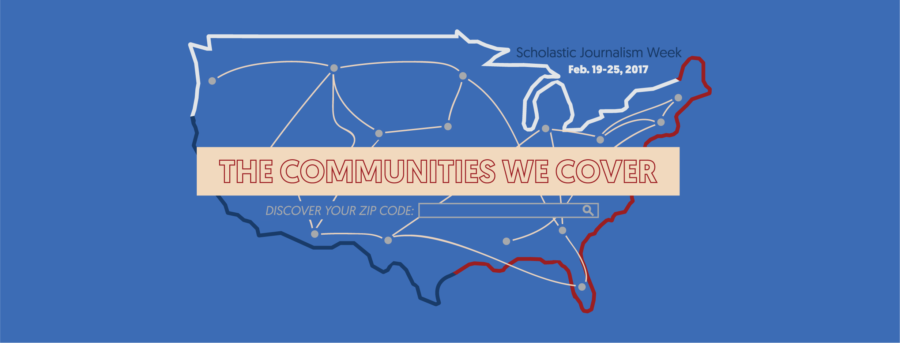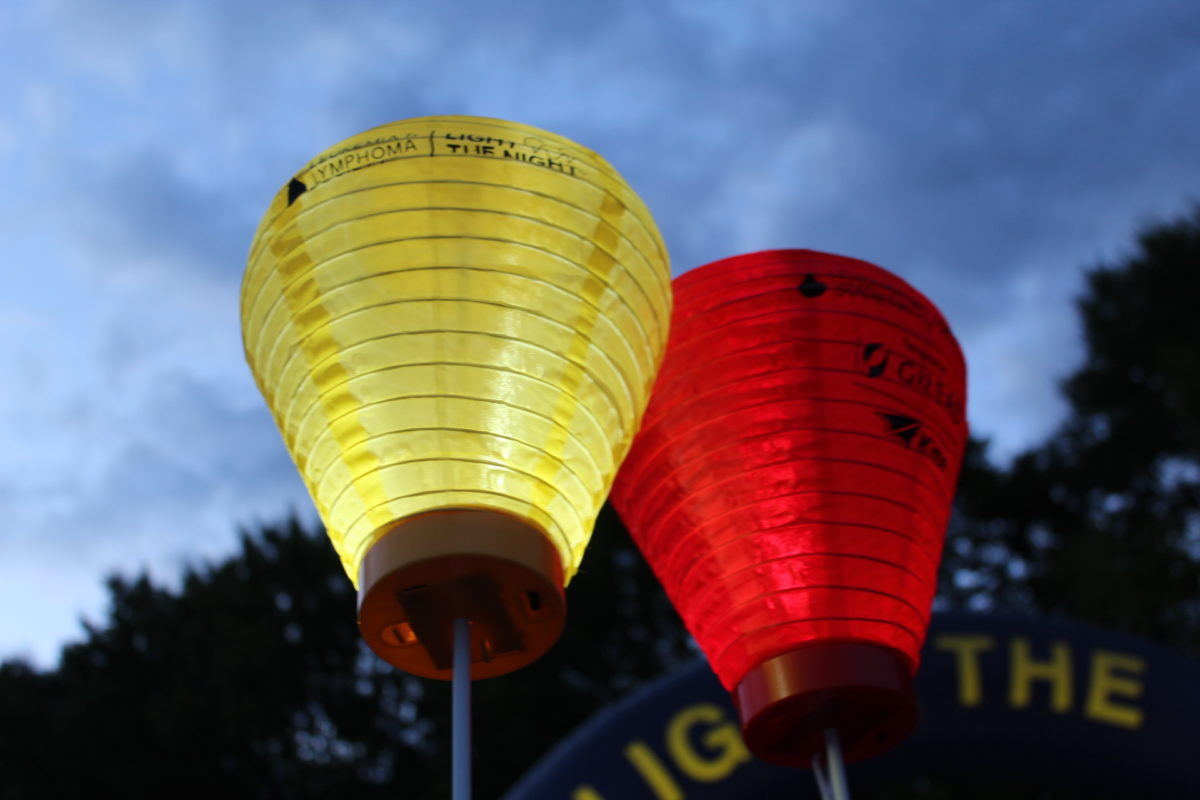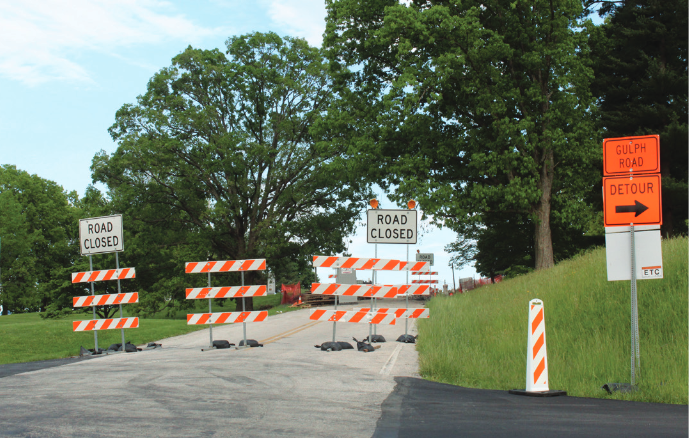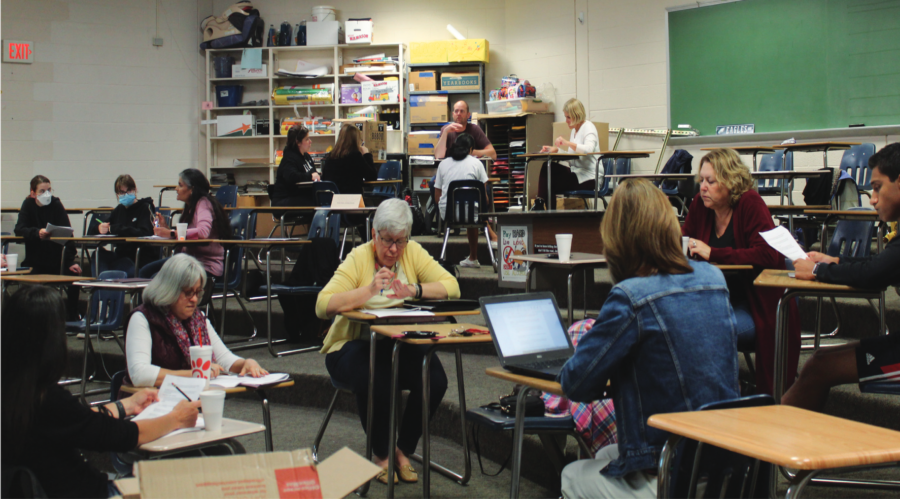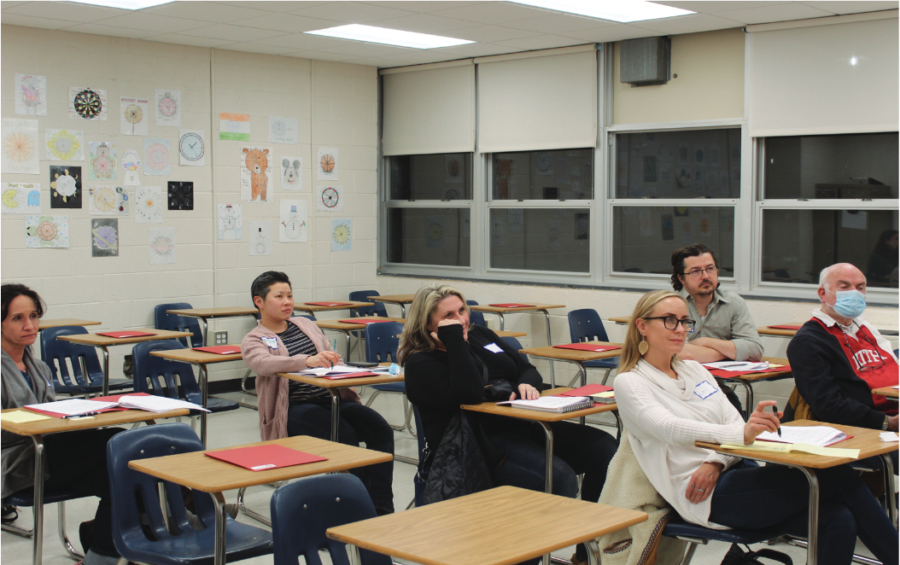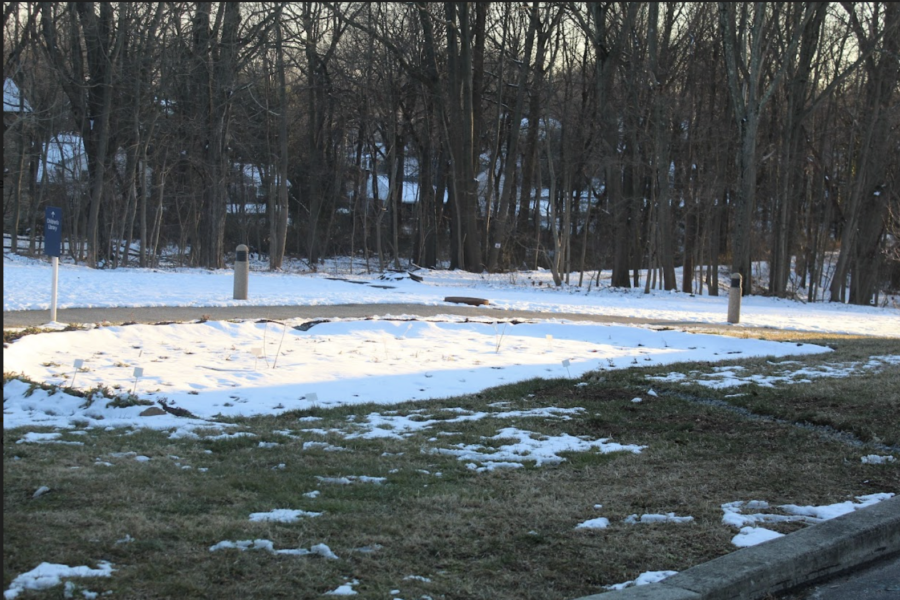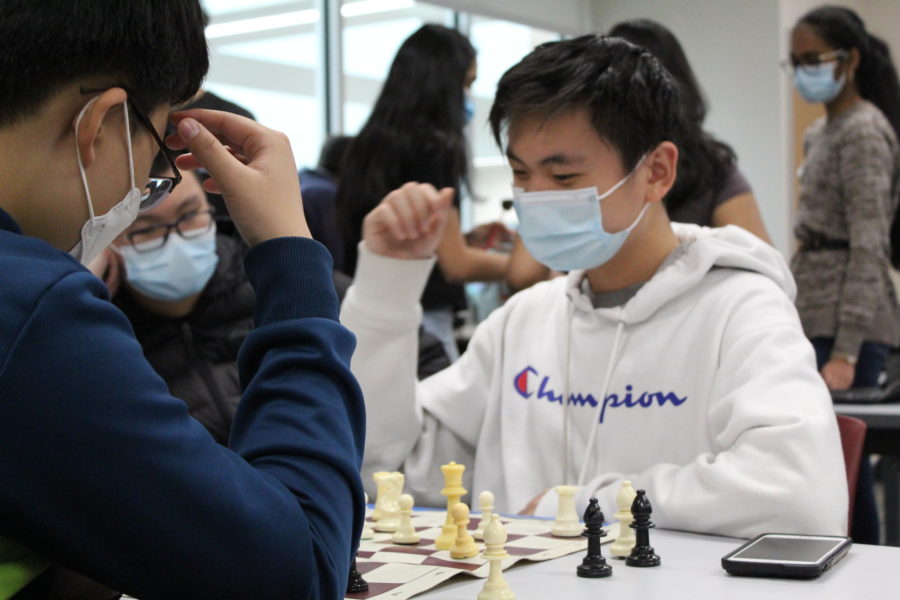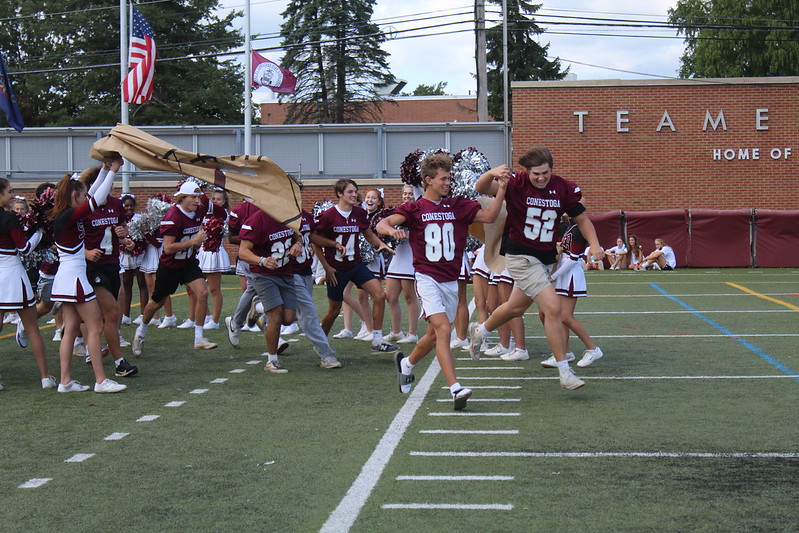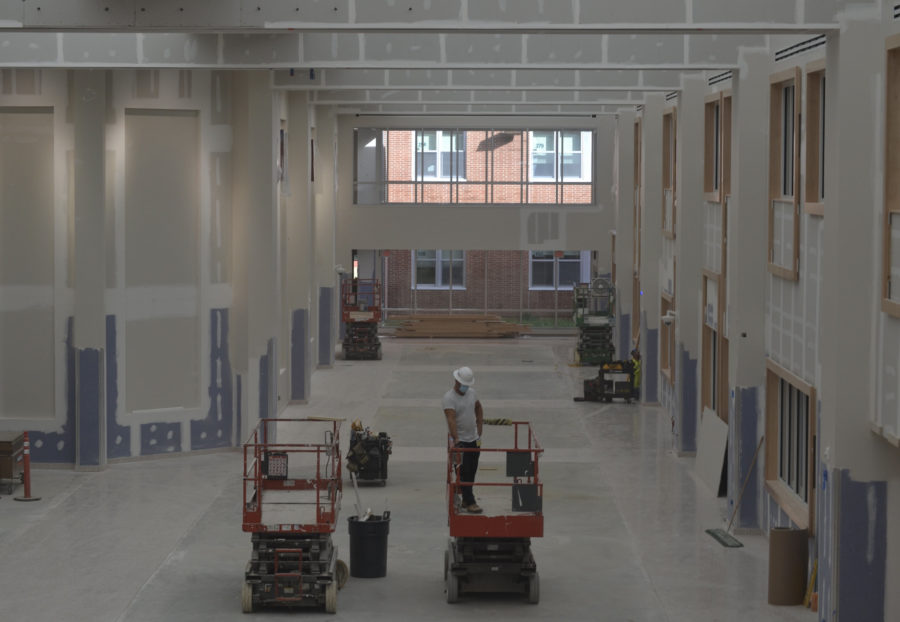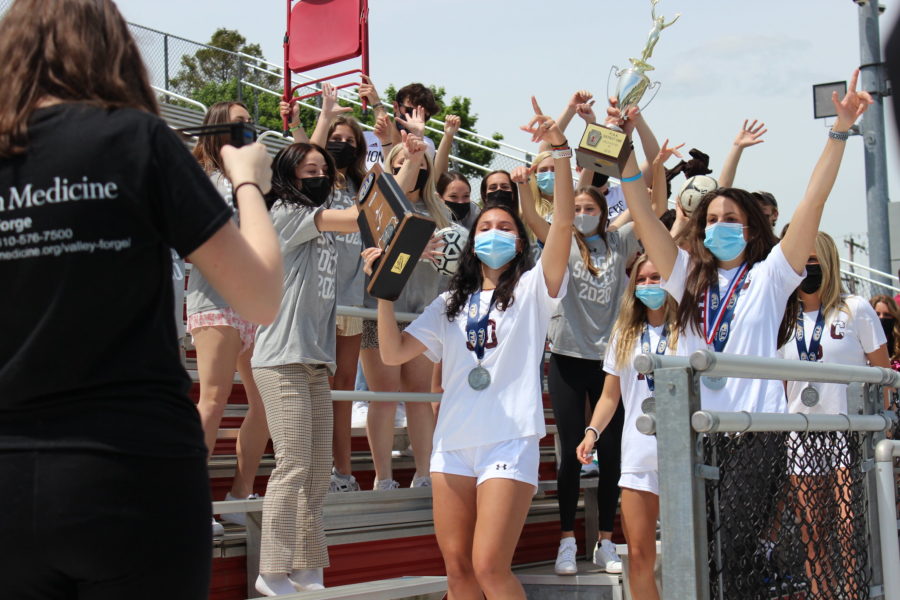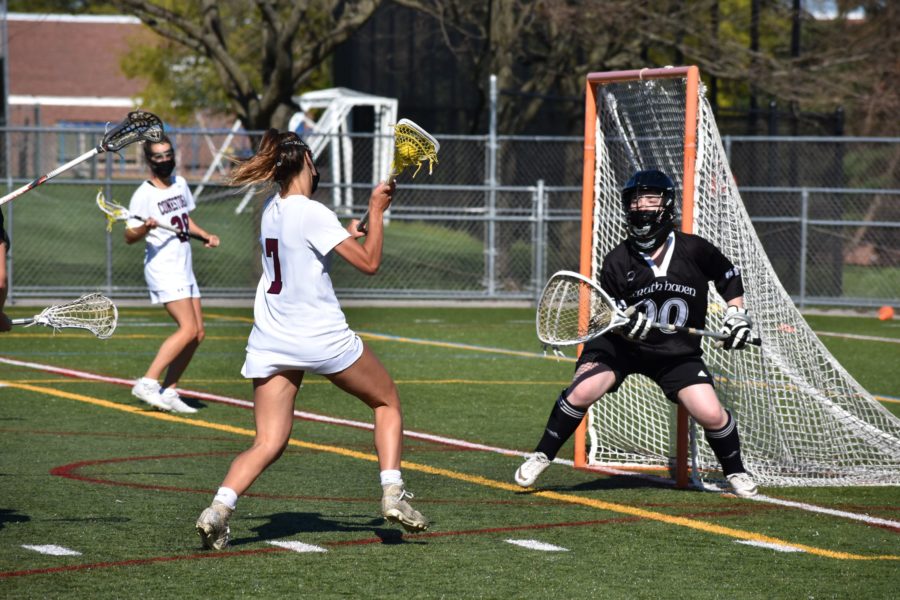The Journalism Education Association (JEA) sponsors Scholastic Journalism Week each year. This year’s theme was “The Communities We Cover.” From Feb. 19-25, publications from around the country were encouraged to promote student journalism in their schools and communities through social media campaigns. At Conestoga, publications include The Spoke newspaper, The Pioneer yearbook, The Folio literary magazine and Good Morning ’Stoga televised morning announcements.
Reporters from The Spoke asked students, teachers, parents, alumni and community members how Conestoga Media affects our community.
[unitegallery SJW17]
JEA also hosts a logo contest to brand each year’s theme. I had the pleasure of winning the contest for Scholastic Journalism Week 2017. In addition to turning in the vector file and details about what colors were included, I submitted a rationale about my artistic decisions. My artistic brain and my expository brain don’t work well together. Making a design and then writing about it were equally as challenging. Here is an excerpt:
“(…) I was inspired by a falsified perception that experts and public figures create when they get on the can and rant about a biased, lying, tricking media of today. My advisers have demonstrated in these past four years that journalist don’t go to school to turn out lying columns, deceitful headlines, nor soothsaying scripts. The United States is bound together by a network of storytellers and bottom-line seekers which is why I included a line web.
My high school’s newspaper also participates in a continuous issue swapping program with other schools from around the country. As the newest publications are mailed to our production room, the headlines and layouts transport me to communities I never knew existed so many miles away. That’s where the “Discover Your Zip Code” element came in. It’s a rebound of online store locators. Instead of “searching by zip code,” I wanted other students to feel inspired to seek out more stories from end to end of the area they live in. Beyond that, it’s a call to discover how other high school teams are working diligently to give the voiceless a chance to speak up every time they go to live on-air or to print in their community.”
Designing this logo was one of the marks I want to leave as I come to an end of being the Head Designer for Volume 67 of The Spoke. Though we set aside one week to create hype around student journalism, I can think of three sets of advices reflecting on the purpose of “The Communities We Cover” not only during the week but every day.
To student journalists:
Thank you for all the hours you put into your publication. I know sometimes it’s hard to see past the “Oh, it’s just the high school newspaper or yearbook.” There is no reason that your voice should be curbed because of where it is published. You have the power to do some meaningful coverage in your neighborhood. It takes pride.
Don’t put your guard down and make every chance a lesson to be a better journalist. And don’t miss your deadlines. Keep all the Word documents of your articles and scripts. One, because you never know when you need to search the archives. And secondly, by the time you are a senior, you can catalog how you personally evolve your purpose.
I didn’t write much while I was on staff, but wish I had done more. Writing journalism is a curation of all you know from English class. It brings together the concise, the figurative, the factual. Use that to your advantage.
To our community:
If there is something that you feel is newsworthy, please contact us! Our editors and staff are always open to community input and contribution. If we are not sharing what you are seeing, we invite you to approach any one of our reporters. It’s in our mission to be an open forum for student expression.
Every month, stories are pooled from an idea bank. The quirky, out of the ordinary, underground, against the grain topics are what keep our headlines fresh for you, the audience. It’s important that The Spoke features community stories as much as events happening at Conestoga itself.
To publication advisers:
Continue to spot when a student needs a little push to do something amazing. My plan for my future was nourished by the experience I had while working on the morning announcements and newspaper. Little things—like sending an email about additional opportunities—really add up over the years. That’s how I heard about the Scholastic Journalism Week logo in the first place.
Continue making a distinction between a due date and a deadline. Due dates are for the history essay you didn’t finish last night after swim practice. Deadlines are the moment that copy should be polished and ready to print. Make no exceptions for deadlines unless the thing students are reporting on has not taken place. It has changed my work ethic tremendously. And timing is everything when stories need to go out before details are yesterday’s hot topic.
Though The Spoke is mainly a student-lead environment, our advisers are our databases that frequently share their past experiences and hold us to professional standards. We always can come back to their wealth of knowledge when we need it the most. Our two bold advisers are a guiding hand before we come face to face with administration, but also leave us some distance to encourage creativity.
Adam Lockett can be reached at [email protected]




















































































